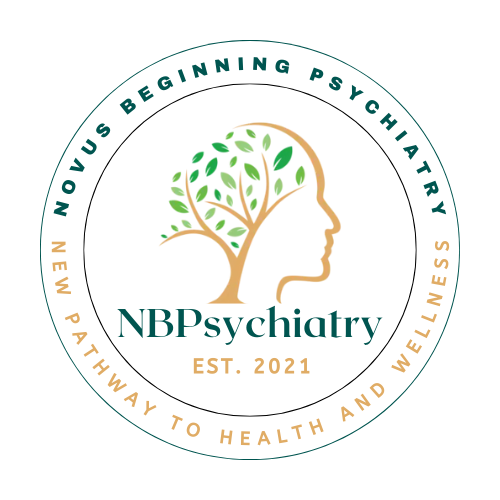What is Postpartum Psychiatry Disorders?
Postpartum psychiatry, also known as perinatal psychiatry or maternal mental health, is a specialized field of psychiatry that addresses the assessment, diagnosis, and treatment of mental health disorders that can occur in individuals during the perinatal period, which includes pregnancy and the postpartum period (typically the first year after giving birth).
When it comes to postpartum and psychiatric disorders, there’s a lot to consider. From the typical baby blues to more serious mood and anxiety disorders, it’s important to understand what you or a loved one may be experiencing. Did you know that up to 80% of women experience mild sadness or low mood after giving birth? While it’s normal to feel a bit down, it’s important to recognize when it’s something more serious, like a major depressive episode that can affect your daily life. Some moms describe it as crying for no reason, but it could be more profound.
Postpartum psychiatry deals with a range of mental health issues. Following are a few of them.
Postpartum Depression
Postpartum depression (PPD) can develop within the first two to three months after childbirth, but it may appear at any time after delivery. Some women may experience mild depressive symptoms during pregnancy. The symptoms of PPD are similar to those of depression that occur at other times in a woman’s life. These symptoms include feeling sad or depressed, crying, losing interest in usual activities, feeling guilty, worthless, or inadequate, fatigue, sleep problems, changes in appetite, difficulty concentrating, and suicidal thoughts.
Postpartum Bipolar Disorders
Pregnancy and postpartum can be daunting for women with bipolar disorder. Research suggests that discontinuing mood stabilizers during pregnancy can increase the risk of relapse, making it a vulnerable phase for women. After giving birth, the chances of experiencing a severe mood episode, such as depression, mania, or hypomania, are higher in women with bipolar disorder.
Postpartum Post-Traumatic Stress Disorder (PTSD)
Experiencing a traumatic childbirth can lead to postpartum PTSD. The recurrence of traumatic events, flashbacks, and intense emotional distress characterizes this condition. Some traumas that can trigger this condition include having a prolapsed cord, undergoing an unplanned C-section, using a vacuum extractor or forceps to deliver the baby, or having the baby go to the NICU. Women who have previously undergone trauma, such as rape or sexual abuse, are also at a higher risk of experiencing postpartum PTSD. Additionally, feelings of powerlessness and poor communication, along with a lack of support and reassurance during delivery, can also contribute to the development of this condition.
Postpartum Anxiety
Postpartum anxiety is a common but often underrecognized condition that can significantly impact new parents during the postpartum period. Unlike the more widely discussed postpartum depression, postpartum anxiety is characterized by persistent and excessive worry, restlessness, and intrusive thoughts, often centered around the health and safety of the baby or the parent’s ability to care for their child. These symptoms can manifest as physical complaints such as palpitations, difficulty sleeping, and irritability, and may be exacerbated by the hormonal changes, sleep deprivation, and new responsibilities that accompany parenthood. Early identification and intervention are crucial, as untreated postpartum anxiety can interfere with bonding, daily functioning, and overall well-being. Recognizing the signs and providing appropriate support and treatment can help parents navigate this challenging period and promote healthier outcomes for both parent and child.
Postpartum Psychosis
Postpartum psychosis is a rare but serious condition that affects approximately one out of a thousand women after childbirth. The condition is characterized by a break from reality, which may manifest as delusions, hallucinations, or extreme agitation. The onset of postpartum psychosis usually occurs shortly after delivery and includes both manic and psychotic symptoms. This condition is considered a psychiatric emergency, and we strongly advise women experiencing psychotic symptoms to seek emergency evaluation.
How Our Psychiatrist Can Help with Postpartum Psychiatry?
Navigating the postpartum period can be overwhelming, especially when mental health challenges arise. Our psychiatrist specializes in maternal mental health and is here to support you through this journey. We begin with a comprehensive evaluation to understand your unique experiences, symptoms, and personal history. This includes screenings for conditions such as postpartum depression, anxiety, bipolar disorder, psychosis, OCD, and PTSD. Early and accurate diagnosis is essential for effective treatment and recovery.
Once we have a clear understanding, we provide personalized treatment options tailored to your needs. Our evidence-based approaches may include cognitive-behavioral therapy (CBT), supportive counseling, or trauma-focused therapy. When necessary, we discuss safe and effective medication options, carefully considering both your mental health and the well-being of your baby, particularly if you are breastfeeding.
We believe in empowering you with knowledge about postpartum mental health and offer guidance for your partners and family members, helping them understand how to best support you during this time. Our team works closely with your obstetrician, pediatrician, and other healthcare providers to ensure coordinated and comprehensive care that addresses both your physical and mental health needs.
Our support doesn’t stop when your symptoms improve. We help you develop strategies to maintain your mental health, recognize early warning signs, and prevent relapse. Ongoing support is always available as you adjust to the many changes and joys of parenthood. Together, we aim to ensure a healthier, more fulfilling postpartum experience.



